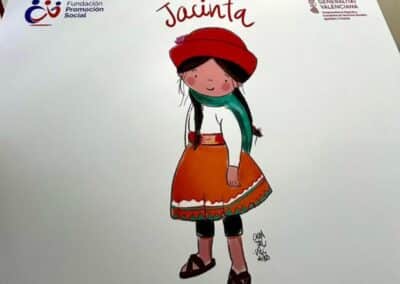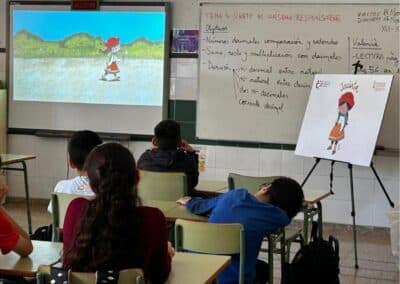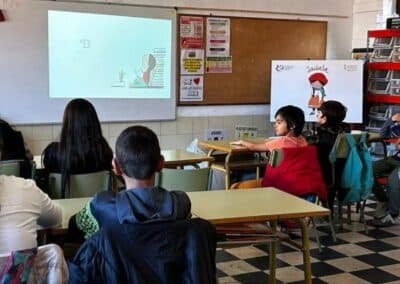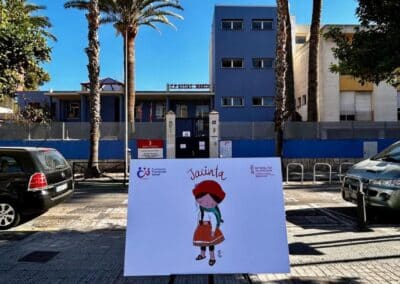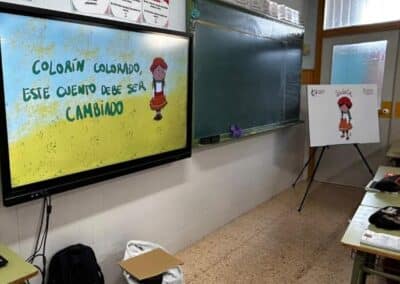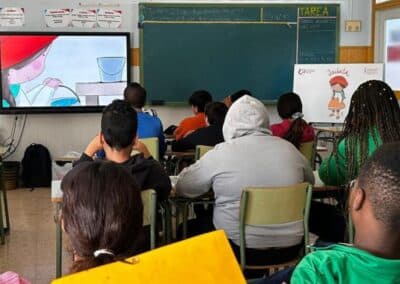Jacinta is a 10-year-old girl who lives in a rural area of Bolivia, where neither her family nor her friends have access to sanitation and drinking water from their homes.
In the audiovisual, ‘Colorín, colorado, este cuento debe ser cambiado’, Jacinta tells how the scarcity of water conditions and limits her daily life in such basic aspects as food, hygiene, education, play and even safety. The lack of availability of quality drinking water in her home means that Jacinta herself has to walk several kilometers a day to provide the necessary water for her family, even exposing herself to situations of personal insecurity.
Jacinta’s story is just one example of the reality that many people living in rural indigenous communities in Bolivia experience on a daily basis, especially women and girls, as they are often responsible for providing this resource for family consumption. The availability of the necessary and quality water in their homes would not only have a positive impact on the safety, hygiene, food and time management of these women and girls, but would also prevent situations of violence and, therefore, promote their rights.
This is the objective with which we are developing a project that promotes the right to water and sanitation in three vulnerable rural communities in Santa Cruz, Bolivia, with the collaboration of our local partner, the Association for the Eradication of Poverty (APEP), and the financial support of the Regional Goverment of Valencia.
Precisely, in the framework of this project, we have designed together with the artist Chantal Vizcaíno and the communication agency of Alberto Pla this audiovisual as part of an initiative of Education for Development that we are developing in several educational centers of the Generalitat Valenciana.
In this way, the 11 and 10 year-old students are learning first-hand about Jacinta’s story and her yearnings for a better life. Her testimony is allowing them to discover and become aware of the difficulties faced every day by children who, like Jacinta, live in rural areas without access to drinking water and other basic infrastructures. Also, as part of this awareness-raising, the students are reflecting on the differences that exist between their reality and that of those children.
So far, students from CEIP Ausiàs March, the Diocesan Parish School Santiago Apóstol and CEIP San José de Calasaz (all of them in Valencia) have already met Jacinta and have participated in this initiative that invites them to commit themselves and act to achieve a more supportive, fair and equitable world.






